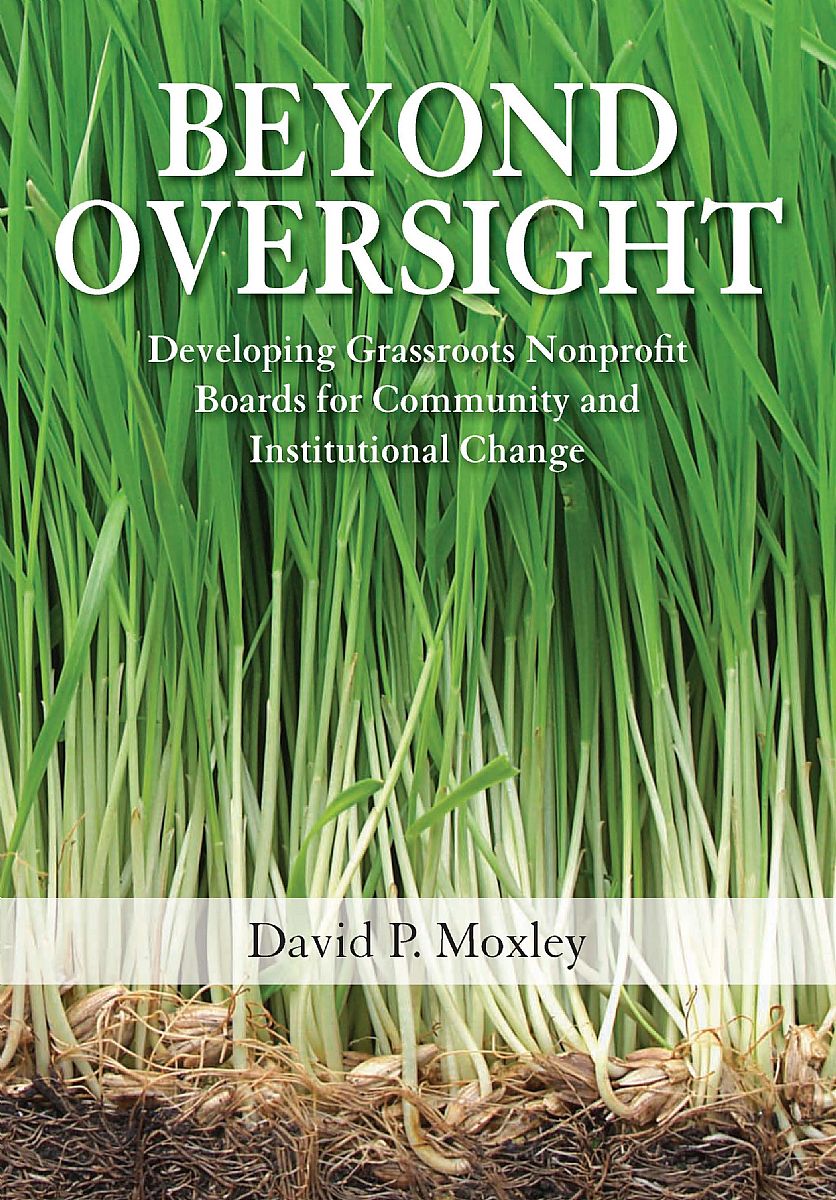
Beyond Oversight
Developing Grassroots Nonprofit Boards for Community and Institutional Change
Author: David P. Moxley
Page Count: 308
ISBN: 978-0-87101-401-6
Published: 2011
Item Number: 4016
$24.43
What does it take to successfully develop a strong and effective grassroots nonprofit board David P. Moxley’s Beyond Oversight: Developing Grassroots Nonprofit Boards for Community and Institutional Change provides nonprofit and nongovernmental organizations with a uniquely authoritative answer to that question. Based on his three decades of work with nonprofit organizations and their boards – principally in the areas of organizational development and achievement of results – Moxley’s book offers a comprehensive perspective on board development that respects how individual organizations must make their own specific decisions about how governance will produce value in community service.
Increasingly, nonprofit or nongovernmental organizations are playing integral roles in community and social change, and their boards are critical structures to the achievement of institutional effectiveness. Throughout the book, Moxley maintains a focus on the community service organization and what makes it distinctive as an agent of social change. Structured as a roadmap, the book offers specific steps for newly founded boards as well as for those that are working to revitalize their leadership.
With its numerous examples and guidelines, this book is relevant to senior organizational administrators working directly with boards, board members themselves, students preparing for careers in community service, and activists engaging in social change efforts at the community level. Beyond Oversight: Developing Grassroots Nonprofit Boards for Community and Institutional Change is one of the best investments you can make in your organization’s governing body.
- ABOUT THE AUTHOR
- PROLOGUE: The Concept of Board Development
SECTION ONE: An Overview of Board Development
- Imperative of Board Development in Community Service
- Five Properties of the Developing Board
SECTION TWO: Developing the Board as a Multidimensional System
- Institutional Dimension
- Functional Dimension
- Performance Dimension
- Lifespan Dimension
SECTION THREE: Developing Board Identity
- Understanding “Who We Are”
- Identifying “Where We Are Going”
SECTION FOUR: Supporting Board Development
- Board Development Mission
- Board Development Committee
- Leadership of Board Members
- Board-Agency Interface
SECTION FIVE: Developing Board Members
- Anticipating Board Membership
- Socializing and Educating Board Members
- Anticipating and Planning Succession
SECTION SIX: Moving Through the Cycle of Board Development
- Self-Evaluation of Board Development Needs
- Board Development Retreat
- Board Development Plan
- EPILOGUE: Journey without End
- REFERENCES
- INDEX
David P. Moxley, PhD, DPA, is a member of the faculty of the Anne and Henry Zarrow School of Social Work at the University of Oklahoma, Norman, and teaches in the school’s graduate concentration on administration and community practice. Focusing on the development of social work practice in community health, particularly in the integration of health and social services, he serves as the Oklahoma Healthcare Authority Medicaid endowed professor and professor of social work. Moxley came to the University of Oklahoma from Wayne State University in Detroit, where, for over 20 years, he served on the faculty of the School of Social Work. With considerable experience in action research, Moxley combines inquiry with technical assistance to grassroots community service organizations – entities that have global significance, are emerging rapidly given the numerous challenges societies face in the provision of social and human services, and form the backbone of social innovation worldwide. His work cuts across multiple fields of human services and social welfare, including serious mental illness, developmental disabilities, youth services, and aging. The common thread is innovation in community support of people who can benefit from enhanced support in the face of multiple life challenges, which often involve serious health concerns.
One of the most critical and least studied subjects in social work administration and management is working with boards. Virtually all voluntary as well as many governmental agencies are governed by boards. Executive directors, commissioners, and chief executive officers with other titles are responsible to their boards, most of whose members are voluntary and often have little if any exposure to social welfare policies and practices. Social work managers are hired, evaluated, and, all too often, dismissed by their governing boards. Ultimately, the boards govern all aspects of the organization’s functions. When properly deployed, boards are able to achieve institutional development and change. David Moxley, a long time student of social work management issues, presents an excellent new work on the development of boards, especially boards for grassroots organizations. NASW and Dr. Moxley provide an important addition to social work literature with this book.
Leon Ginsberg
Editor, Administration in Social Work
